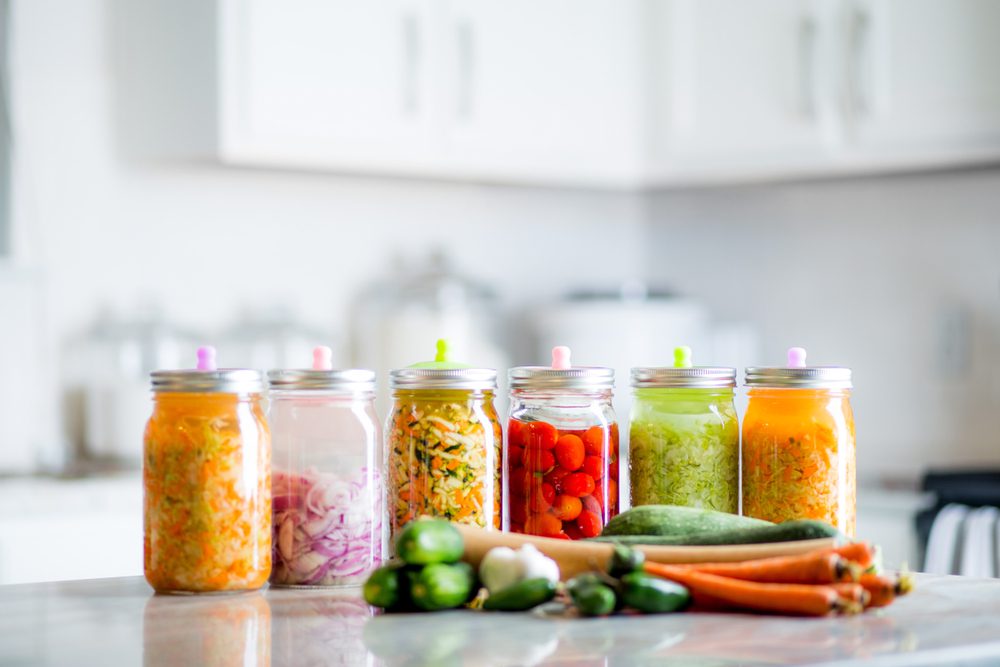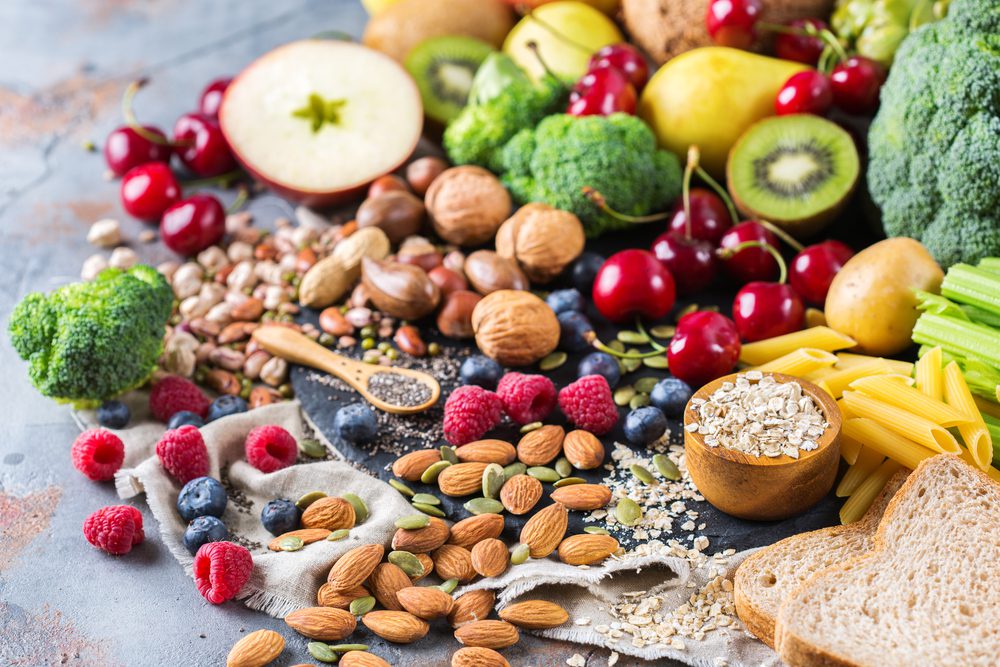Have you ever wondered what gut health is related to?
You’ve probably heard of gut health before. There are so many newsletters, reports, studies, and articles on this matter, that you’d probably need a lifetime to read them all. But apart from the various studies, famous doctors, and pretentious scientific names, what is there to know about our gut?
Why would we need any of that info? Because dictates a lot of things in your body, it is extremely important to take care of it. As Deanna Minich, Ph.D., vice president of scientific affairs for Clean Program said, the gut is the portal to the rest of our bodies. So without further ado, we will tell you everything you need to know about it.
The gut takes in the foods we eat and process them in order to give us the needed nutrients. These nutrients are changing the function of organs, such as the brain, heart, kidneys, and liver. If we have an inflamed gut, we’re not able to properly digest, and we lose the ability to take all the benefits from a diet rich in nutrients.
Naturally, it’s not all about getting the proper nutrients out of the food, as the matter goes way further than that. Poor gut health may lead to other problems in the body. So you might believe it or not, it all starts down there.
So truth to be told, most of us know that our gut can affect digestion and the proper absorption of nutrients, but it can also manifest in poor hormonal health, skin health, and even mental health.
Yes, you read that right: if your gut isn’t functioning properly, you might feel it in your skin and in your daily moods, as Alli Magier explains, MS, RDN, LDN, a registered dietitian at Rooted Wellness. Your gut is basically the second brain in your body – bet you heard that a couple of times, haven’t you? But what does it actually mean? Let’s see!

You can think of your gut and the brain as being in constant communication, which plays a key role in preventing possible diseases, immune system functioning, organ health, proper sleep, and overall mental health.
So if we suffer from an unhealthy gut, we’re going to see a physiological, hormonal, and emotional response that’s very likely to appear. So, I’ll say it again, our gut is CRUCIAL. But how can we tell exactly if our gut is in good shape? Like anything else in our body, there are some signs we can read into. In most cases, GI symptoms are the best indicator.
If you start noticing any changes in your digestive process, and by that I mean your stomach is aching, increased gas, bloating, or even changes in bowel movements, don’t rush into believing that it’s automatically cancer or a chronic illness.
To be completely honest, I am speaking out of my personal experience. I have had problems with my gut for a while now, and the first three doctors told me that it was either a chronic illness or cancer. You can only imagine how terrified I was, as I was bouncing between suffering my whole life from chronic pain and cancer diagnosis.
But thank God that I met my last doctor, who told me not to worry about any of these. The minute I entered her office, I was already sweating at the thought of the procedures I’ll have to go through.
But the minute I told her my symptoms and what the other doctors said, she started laughing. “It’s none of that. You just need to fix your gut microbiome.” At first, I thought she was making fun of me, while it would have made more sense to believe that the other doctors did so. For whatever reason, we tend to give credit to those doctors who give us a more fatalistic result.
Some of the symptoms that I have experienced and you might notice are stools that are loose, pieces of undigested food, dreadful pain after eating some foods, such as onion, oranges, or anything spicy, sometimes even sugar, fatigue, difficulty getting proper sleep, irritated skin, intense sugar cravings (and I thought I was just a sweet-tooth), and unintentional weight changes.
You might also notice a difference in your mental health, and your gut issues can manifest through skin rashes, eczema, psoriasis, or random breakouts. If you think about it, there are lots of symptoms. So the mind-gut connection is very real!
So what does it take to have a healthier gut? It’s not just about the diet, but it’s also a lifestyle choice. Let’s find out what you need to look after!
Your diet
Doctors say that what you eat, how you eat, and when you eat are extremely important. As Minich said, “We might know that what we eat can inform our gut microbiome, which can lead to many changes throughout the body, from our moods to our memory.”
The way we eat can either be extremely rushed or with mindfulness, but either way, it can change the quality of our digestion and might result in changes in your acid, gas, or bloating. When we eat is also very important for our gut health.
You have no idea how many days I had stomach issues just because I skipped breakfast! They don’t recommend eating in the daylight hours for nothing, trust me!
Eating a wider variety of foods
Eating only processed foods can put you at risk of poor gut health. If your diet is mainly composed of foods that are high in sugar, lab-made fats, and processed foods, your gut microbiome might be altered in time, leading to poor gut health and increased chances of inflammation.
Why? Because these foods can lower the “good” bacteria in the gut. Also, the imbalance can lead to more sugar cravings, which will only create a cycle of eating more processed, high-sugar foods. The inflammatory response will be higher and the gut health will worsen. So it’s pretty obvious at this point that we would be talking here about a vicious cycle.
Chronic stress
If you can’t manage your stress, it will affect your gut, too. Doctors are oftentimes citing research that shows how stress can alter the gut-brain axis, inducing inflammation, decreasing immunity, increasing GI permeability, and even altering gut bacteria composition and function.
And not that I want to repeat myself, but you’ll feel these effects because they provoke pain and irritation. And what is the effect of pain and irritation on our overall health? We become even more stressed out, irritated, and even annoyed. Which again, is leading to a vicious cycle. In order to break this cycle, we need to start the change from our gut.
Antibiotics
Yes, antibiotics might be good, as they might kill the bacteria, but they’re also after the good bacteria in your gut. Antibiotics aim for any kind of bacteria, as they aren’t able to make a difference between good and bad bacteria.
So taking antibiotics too often might result in poor gut health, as many doctors won’t tell you ever. Why is that? We still don’t know. That’s why it would be best to take them only when it is absolutely necessary, at least if you don’t want to damage your gut flora. Also, when you’re taking antibiotics, try taking a probiotic too.
Alcohol
While we probably said it a million times and you already heard it a bazillion times too, alcohol is a toxin and the body sees it as such. So if you regularly consume large amounts of alcohol, your bacterial makeup of the gut will change over time.
Alcohol can wipe out all the progress you have ever made and all the beneficial bacteria that reside in the gut, which leads to an imbalance of good and bad bacteria. Alcohol, as you probably know, it’s very acidic, and it does nothing but harm your gut microbiome. Of course, we’re not talking here about the recommended glass of wine a day.

How can I heal my gut?
As I mentioned before, when the last doctor that I went to illuminated me that I don’t have cancer, but only a strong and filthy gut imbalance, I started looking out for what is there to do. Naturally, your doctor is the best at helping you with personalized recommendations, depending on your health history.
But I personally believe that it’s not only something that your doctor tells you to do and you go home and just do it. No, it has to become a lifestyle. You can google up things about what you need to know and read articles like this one.
It really helps, believe me, because you’ll soon be able to help yourself without needing to frequently visit the doctor. And that’s ultimately the goal, isn’t it?
So after visiting the doctor and running the needed test to diagnose the problem, whether it’s digestive enzymes, inflammation, leaky gut, or even growths such as polyps, we should start discussing how to improve our lives, right?
Apart from the medications and procedures, your doctor might recommend, let’s see what we can do ourselves and what is there to change in our daily routines:
Try following an anti-inflammatory diet
Doctors are recommending sticking to an anti-inflammatory, plant-forward diet. But what does it mean, really? Well, this type of diet should be extremely rich in fruits, vegetables, beans, legumes, nuts, seeds, whole grains, lean protein, and healthy fats.
Basically, all the things that everyone is always recommending, but you never know how to cook them (at least, that’s what happens to me). But this is what you need to do. Thank God, we have Google to help us out with 10-minute recipes and fun ways to cook some of these boring foods that make us feel so much better.
I know what you’re thinking: why can’t cheeseburgers be healthier? I know, right?

Eat more fiber-rich foods
Also, you should definitely add more fiber-rich foods to your diet. They’re the best friend our gut might ever have! Fruits, vegetables, whole grains, beans, and legumes, the good old story. But wait, there’s one more thing to add here: when I say fruits and veggies, I mean THOSE fruits and veggies that your doctor recommended you. For example, I had to avoid eating apples, bananas, apricots, and so on, and eat more mangos.
Limit the number of processed foods
Another way of improving your gut health is by reducing the amount of highly processed foods you’re eating. They are loaded with sugar and saturated fats and don’t offer you enough nutrients. Fried foods, frozen meals, processed meats, sugary drinks, and even refined carbohydrates…all the good stuff. It is also recommended to avoid food and drinks that have artificial sweeteners.
Opt for single-ingredient foods
You can try eating more single-ingredient foods. For example, a plate that’s filled with salmon, quinoa, and broccoli has only three main ingredients. But if you’re going for a pre-made frozen meal that you just bought from the grocery store, you won’t be able to name all the ingredients just by looking at it.
Research has proven that your gut flora can change rapidly, so by loading up on those veggies, you’ll immediately see the benefits!
A great way to introduce more veggies is to opt for plant-based recipes or introduce more veggie-prone recipes in your meal rotation. This book has been a great help to us when we decided to do this in order to help our gut, and we believe you may benefit from it too!
Add one prebiotic and one probiotic
By adding at least one prebiotic and one probiotic to your diet, you’ll increase the good bacteria in your gut. Plain yogurt, sauerkraut, kimchi, kefir, and sourdough bread are all probiotic-rich foods. While prebiotic-rich foods include barley, oats, potatoes with their skin on, beans, and good old legumes.
Try to eat slowly
The way you eat can have a great impact on your gut health, and you might benefit from chewing slowly and thoroughly. Also, it’s best if you allow yourself some time after you just ate to digest properly. Lying down after a meal will have a positive impact on your microbiome.
Keep track of your progress and your diet
You should try and keep track of what you’re eating, to spot the foods that are harming you. If you have symptoms after eating a specific food, maybe it doesn’t work for you. This way, you’ll identify food intolerances and triggers, so you can eliminate the culprits from your diet.
If you enjoyed reading this article, we also recommend reading: 10 Things That Happen If You Go Vegan For One Month.





